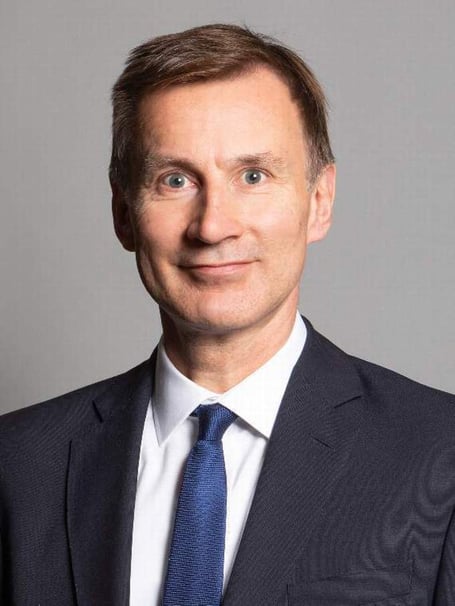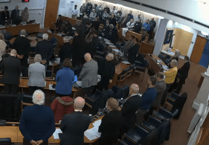JUST as we all hoped life was getting back to normal after two horrible years, this dreadful virus is acting like the baddie at the end of a movie who suddenly leaps back to life after you thought he was finished.
Is this going to be an equivalent and deadly twist at the end of the Covid drama?
I am worried about Omicron but I don’t think it is quite as bad as that. Let me give you two reasons why.
Firstly, this time last year virtually no-one had been vaccinated. Now most of us have had two jabs and many of us have had boosters which are 70 per cent-plus effective at stopping transmission and still pretty likely to stop hospital admission.
Within 100 days we will also have a vaccine that is fully effective against the new variant, such has our scientific knowledge advanced. Vaccines are genuinely a game-changer in the fight against any pandemic – and we have come a long way since the start of the pandemic when many doubted a vaccine would be ready for years.
Secondly, we – and the government – have learned a lot in the past two years.
The government knows the best way to head off a lockdown is to act early and the best weapon to do so is immunisation. Hence the prime minister being willing to court unpopularity with his own parliamentary colleagues this week – and his sensible decision to turbo-charge the booster programme.
Could we have done so even earlier? Yes, but given we have put more booster jabs in arms than any other European country (and by some distance) it is not, I think, fair to say the government has been soft-pedalling on the booster programme.
Of course, it is incredibly frustrating for businesses in Waverley to cope with uncertainty once more – but as any business owner knows, when there are risks you don’t fully understand, it is always worth buying time until you do. That is broadly what the government has been doing.
Alas one lesson, however, we do not appear to have learned – along with every other Western country – is the importance of getting vaccines out to developing countries. Omicron may well have emerged after mutating in the body of an immune-compromised South African. Had that person been vaccinated we might not be in the situation we are in now. If ever there was a time that no-one is safe until we are all safe, it is a pandemic.
My biggest worry at the moment is the NHS. With record demand for emergency care in our A&Es, GPs seeing record numbers of patients and 5.8 million people on the waiting list for planned care, it really is facing the toughest of winters.
It goes without saying we should be incredibly grateful for the service NHS and care staff are demonstrating.
But I hope we can turn that recognition into more than just warm words. What we need is a long-term reboot of the health and care system so it really is set up for the challenge not just of pandemics but of an ageing population.
How we do so is what my select committee will be looking at in the next few months, with big reports coming out on cancer, general practice and workforce.
We will get through this particular crisis – but at the cost, I fear, of a totally exhausted front-line workforce. They need to know things are going to get better, just as we all do.





Comments
This article has no comments yet. Be the first to leave a comment.